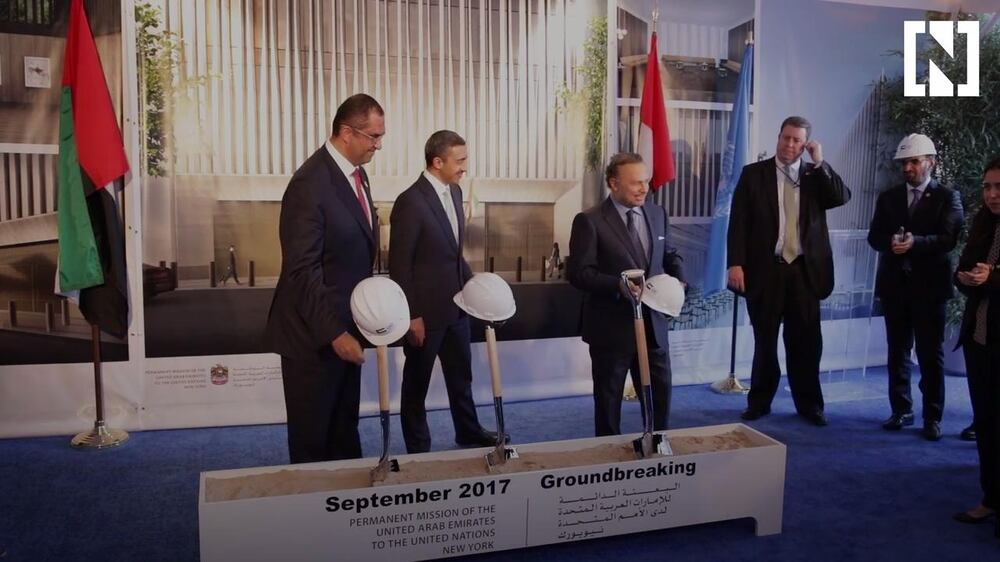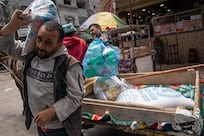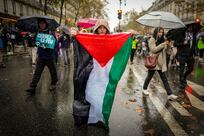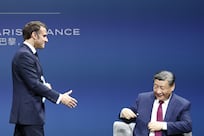The world stands at a cross roads: one direction leads to modernity and the other takes us towards extremism. No region better epitomises this struggle than the Middle East, as Sheikh Abdullah bin Zayed, the UAE's Minister of Foreign Affairs and International Cooperation, told the United Nations General Assembly. On the one hand are moderate nations that have dedicated themselves to the betterment of their people and the world beyond their own borders – nations that pursue "peace" and development". On the other hand are extremist powers that spread "darkness, destruction, sabotage and chaos" in pursuit of their expansionist ambitions. For the former to prevail, the world will have to stand as one against the latter. There can be no ambiguity in their contest.
Ministers break ground on new building for the permanent mission of the UAE to the UN

As Sheikh Abdullah put it, “We must demonstrate zero tolerance to those who spread violence, fear and destruction among innocent people, and those who provide support and safe haven to terrorist groups”. The principal source of strife in the Middle East is, unquestionably, Iran. The consequences of Tehran’s quest for dominance can be seen in the carnage and chaos of Yemen, where Iranian-backed Houthi rebels have dislodged the internationally recognised government and held the population captive for over two years. In Syria, the murderous dictatorship of Bashar Al Assad, which has displaced millions and killed hundreds of thousands of innocent civilians, survives primarily because of Iran and its terrorist proxies. Mr Al Assad and Iran have got away because the world, for all its protestations, has in effect given up on Syrians.
___________________________
More from Opinion on the UNGA
[ How to reach the sustainable development goals, two at a time ]
[ The fate of humanity rests in the hands of each and every one of us ]
[ Editorial: The UAE is at the forefront of the effort to revitalise the United Nations ]
[ Editorial: In praise of the UN's imprecise goals ]
___________________________
Iran has been joined at the hip by Qatar, a state that continues to finance terror, extend hospitality to extremists and intervene in the internal affairs of other states. In Southeast Asia, as Sheikh Abdullah reminded the UN, the most horrific instance of ethnic cleansing is being carried out by the Myanmar military while, yet again, the world assumes the role of a spectator. This is not to say that the international community has nothing to show for itself. Sheikh Abdullah paid tribute to UN mediators who have achieved a measure of progress in Libya and Somalia, and even Syria and Yemen. He was quick to add, however, that much more can be done to "restore stability in the Arab world".
The UAE, along with its partners, is doing its part. The Riyadh Summit earlier this year demonstrated the determination of the Arab and Islamic world to wipe out the scourge of extremism and terrorism by attacking their ideological roots. But this cannot be done if the world indulges the states that are known purveyors of extremism and sponsors of terrorism. As Sheikh Abdullah put it, it is time to "take collective action to identify countries that support and finance terrorism, and hold them accountable". This action must be coupled with the promotion of "compassion, tolerance and inclusion". The paths are clear. The future of the world depends on the direction it chooses.
FULL Speech of #UAE FM @ABZayed to #UNGA addressing struggle in Arab world, Qatar, Iran, Libya, Rohingya, Syria, Iraq. Part 1/2: pic.twitter.com/uzjzUlBq2D
— The National (@TheNationalNews) September 23, 2017
Follow The National's Opinion section on Twitter
___________________________
More on #UNGA2017
[ Reform takes centre stage at the UN as it faces up to its failings ]
[ UAE envoy urges reform of the United Nations ]
[ UAE Foreign Minister tells UN the world stands at a cross roads between modernity and extremism ]
[ Fresh optimism on peace process as Trump devotes his 'heart and soul' to deal ]
Listen to our Beyond the Headlines podcast: Spotlight on the United Nations





